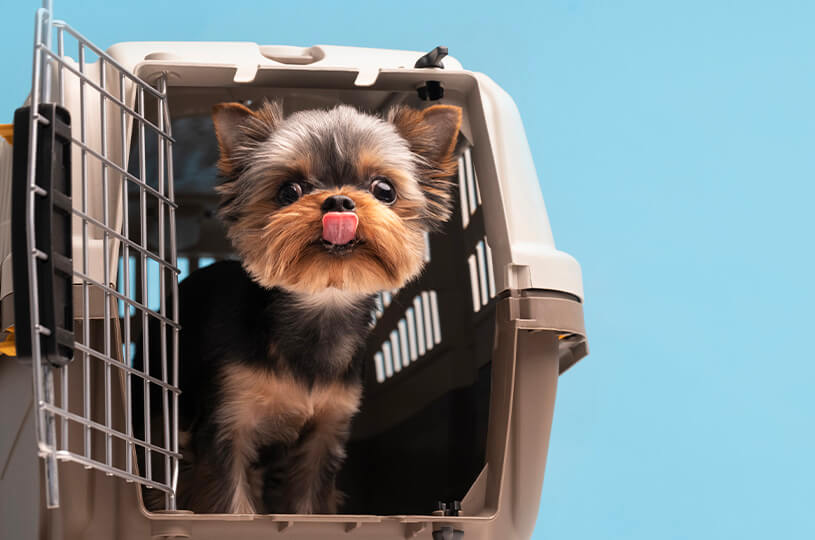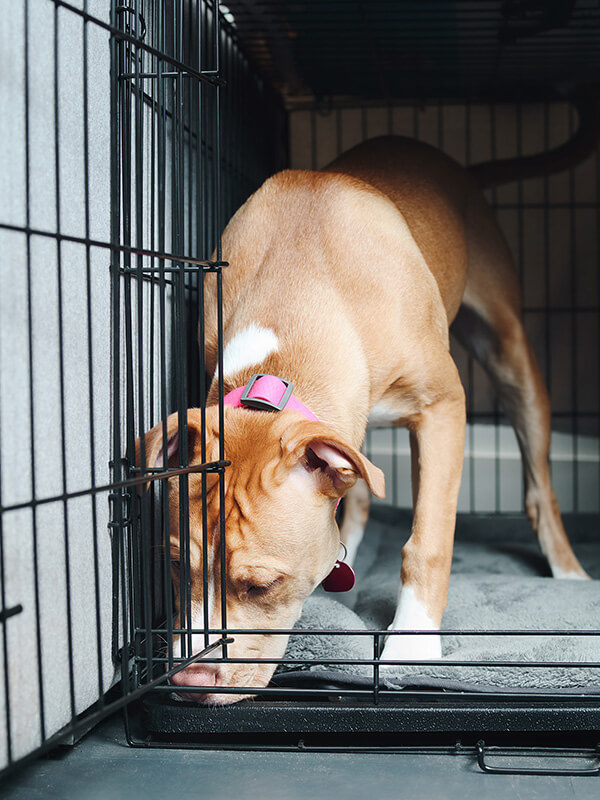Crate training is an effective way to train your dog and provide them with a safe and comfortable space of their own. They can go to their kennel when feeling stressed or anxious, and the enclosed space of a crate can prevent them from wandering the house and getting into things they shouldn’t.

Crate training has several benefits for both you and your pup. A crate can provide your dog with a safe, secure place to relax, rest, and decompress, especially when you’re not home. It can help with housebreaking and prevent destructive behaviors, as your dog won’t be able to chew on furniture and other non-toy items in the home. Additionally, a crate can help your dog when traveling with your dog or during vet visits!
When choosing a crate for your dog, consider their size and weight, as well as their personality and behavior. A crate should be large enough for them to stand up, turn around, and lie down comfortably, but not so large that they can use one area for sleeping and the other for potty purposes. Some dogs may prefer an open-wire crate, while others may feel more secure in an enclosed crate. Whichever you choose, make sure it’s sturdy and safe.

Introduce your pup to the crate gradually and in a positive manner. Place the crate in a quiet area of your home and leave the door open, allowing your dog to explore and sniff around the crate. Once they have satisfied their curiosity, begin feeding them meals inside and give lots of treats and praise when they enter voluntarily. Gradually increase the amount of time your dog spends in the crate until they are comfortable for longer periods when you must leave or if you plan to kennel them at bedtime. Choose a command to tell them it’s time to enter the crate and make sure other members of your household use the same command to be consistent.
There are some important do’s and don’ts to keep in mind when crate training your dog. Do make the kennel a comfy and positive space for your dog. Do not use it as punishment or leave your dog in the crate for extended periods of time. Make sure to provide enough exercise, stimulation, and attention outside of the crate daily. Never force your dog into the kennel or use it as a substitute for training or socialization.
Crate training can be a positive way to train your dog and provide them with a safe space. With patience and consistency, your dog can learn to love their crate and make it their very own cozy space.